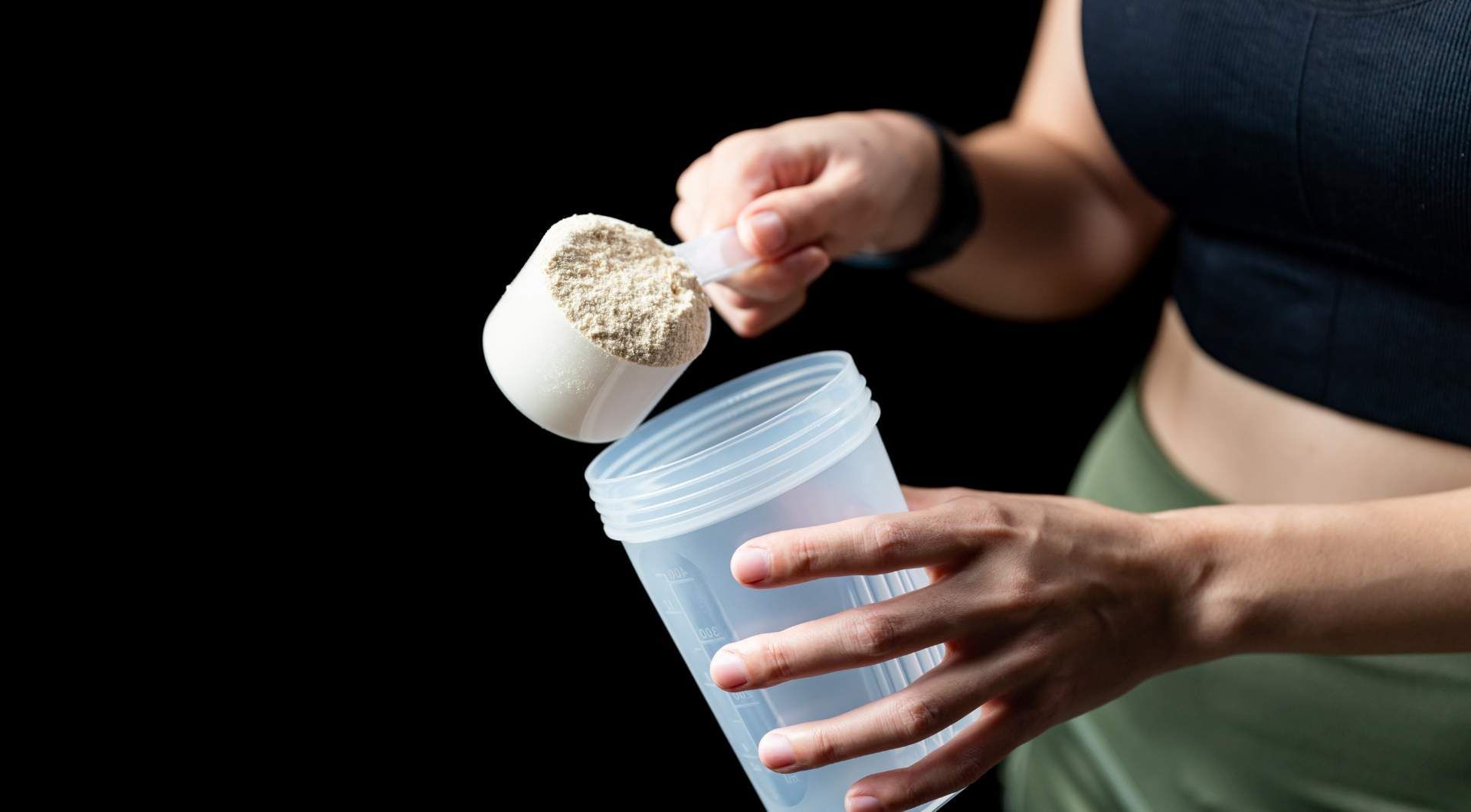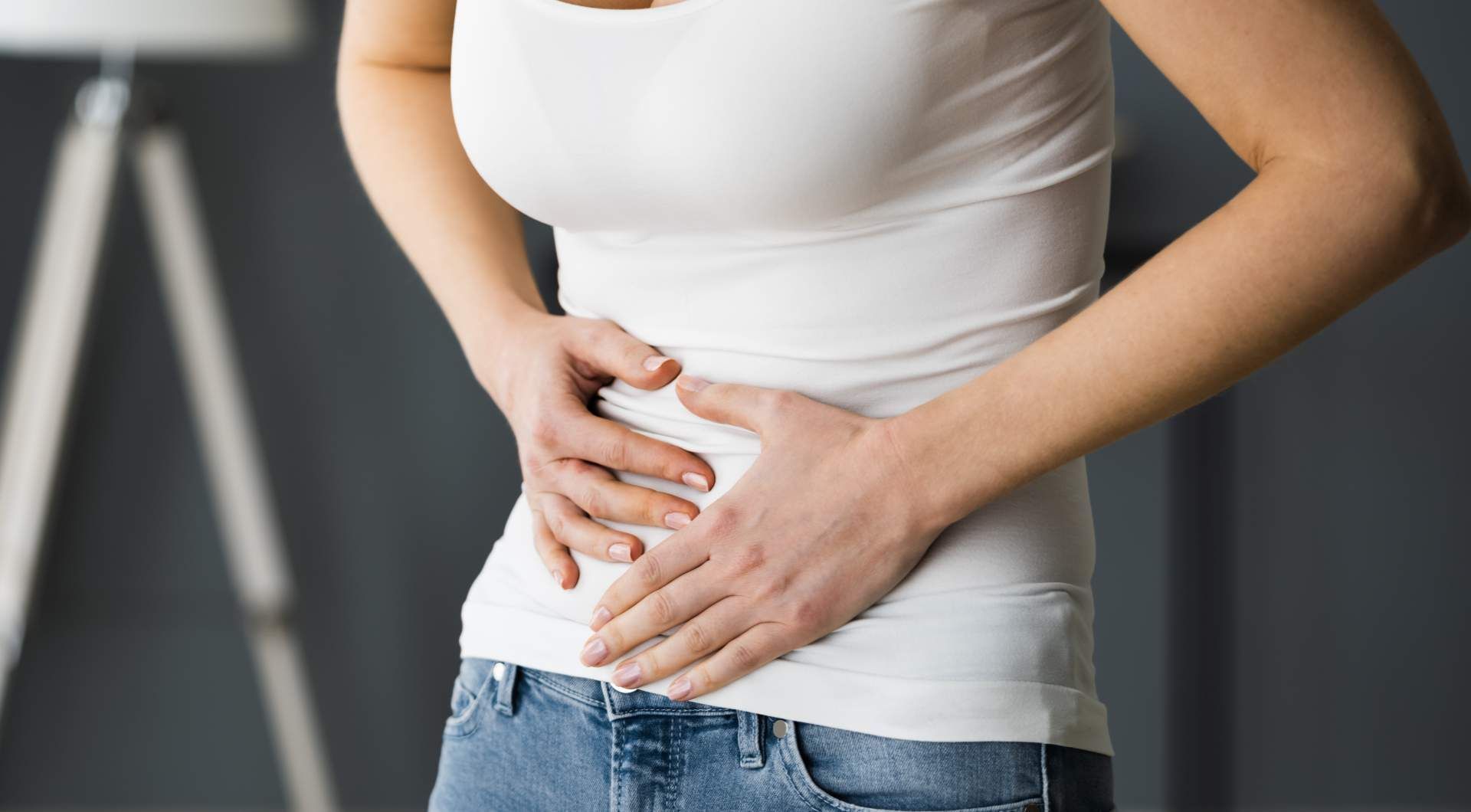Can Protein Shakes Cause Constipation? Exploring the Relationship Between Protein Shakes and Bowel Movements
"The content below is not intended to be a substitute for professional medical advice, diagnosis, or treatment. Always seek the advice of your physician or other qualified health provider with any questions you may have regarding a medical condition."
Drinking protein shakes is a popular and easy way to add more protein to your diet. Add some fruit or green leafy vegetables, and you may create a meal replacement that can be both healthy and delicious.
Despite the flavorful and health benefits, some people who drink protein shakes may deal with digestive issues, like diarrhea, bloating, or constipation.
We’ll discuss the different kinds of protein shakes on the market, uncover the reasons behind constipation when drinking them, and provide tips to help you combat any constipation that may result.
Table of Contents
- Do Protein Shakes Make You Constipated?
- 4 Types of Protein Found in Protein Shakes: Can They Cause Bowel Issues?
- 3 Reasons Why Protein Shakes May Cause Constipation
- 4 Tips for Dealing With Constipation Caused by Protein Shakes
- HealthierU: Discover Our Holistic, Nutritional Approach to Health and Wellness
Do Protein Shakes Make You Constipated?
Yes, protein shakes may cause constipation, but their tendency to block your bowels depends on various factors, like:
- The type of protein in the shake
- The amount consumed
- The general gut health of the individual
If you’ve experienced constipation when consuming protein shakes, it’s helpful to know how their ingredients and other personal health issues may contribute to the problem.
HealthierU is here to help you get to the bottom of unpleasant digestive issues with Nutrition Response Testing and promote digestive health with whole-food nutrition.
4 Types of Protein Found in Protein Shakes: Can They Cause Bowel Issues?
Can protein shakes make you constipated?
Protein shakes are made with different types of protein, so to answer that question, we need to look a bit closer at the different types of protein used and how they may or may not contribute to constipation.
#1: Whey Protein
Whey protein is taken from cow’s milk and is a common type of protein used in protein shakes and powders. Whey contains all nine essential amino acids, making it a complete protein that is easily absorbed.
Whey proteins can be subdivided into three types:
- Concentrate
- Isolate
- Hydrolysate
Whey concentrate is considered a low-quality protein option because the refinement process is limited to removing water via reverse-osmosis and evaporation systems. Concentrates often have up to 80% pure protein, though some whey protein products can be lower.
The remaining nutritional content of whey concentrate includes fat and carbohydrates — which can be high in calories.
Whey isolate contains at least 90% protein by weight, which means it is refined more than whey concentrate and has a lower caloric content. It also has a lower amount of carbohydrates, meaning it’s also lower in lactose content.
Whey hydrolysate is a type of whey that has been treated with enzymes, heat, or acids. These processes are used to break peptide bonds which helps with rapid digestion.
Can Whey Protein Shakes Make You Constipated?
Whey proteins may cause constipation, especially for those who are lactose intolerant. Lactose intolerance may slow the movement of the gut, resulting in constipation.
If you are lactose intolerant and want to drink protein shakes, choosing a shake or powder made with whey isolate may be better than whey concentrate.
Because it is more refined and contains less lactose and fat, whey isolate may be easier on the stomach and the bowels.
#2: Casein Protein
Like whey, casein is found in cow’s milk and makes up about 80% of the protein in milk. Unlike whey, casein protein digests slowly. For this reason, many athletes use casein protein before bedtime to benefit from the slow release of amino acids during the night to promote exercise recovery.
Can Casein Protein Shakes Cause Constipation?
Because casein protein digests slowly, it’s not likely to cause constipation on its own. However, if protein shakes made with casein are consumed without adequate hydration or fiber intake, constipation may be an issue.
#3: Plant-Based Protein
Though most plant proteins aren’t complete proteins that provide all the essential amino acids, many plants can provide a good source of protein. Even so, certain plant foods — like peas and sunflower seeds — can be processed in a way to remove most of the fat and carb content to isolate the protein.
Plant-based protein shakes can be a viable option for those with a dairy or lactose intolerance.
When it comes to plant-based proteins, there are lots to choose from, including:
- Pea
- Pumpkin seed
- Brown rice
- Hemp
- Soy
- Sunflower seed
- Sacha inchi
- Chia
Plant-based protein blends may be the best option to get optimal levels of amino acids.
Can Plant-Based Protein Shakes Cause Constipation?
If you want to increase protein consumption with a low risk of constipation, plant-based protein shakes and powders may be a good option. Because they are lower in fat and carbohydrates and higher in fiber, plant-based protein may make bowel movements easier and constipation less frequent.
#4: Egg Protein
Egg protein powders aren’t as popular or readily available as other protein powder options and can be more expensive.
If you have a dairy allergy or are lactose intolerant, egg protein might be a good option because it is:
- Dairy-free
- A complete protein; and
- Flavorful
Can Egg Protein Shakes Cause Constipation?
Egg white protein is easily absorbed and digested in the body and has one of the highest protein digestibility-corrected amino acid scores (PDCAAS), making it an excellent choice.
Like casein, egg protein doesn’t usually cause constipation on its own. Those who experience constipation while consuming egg protein shakes would make sure they are staying hydrated and getting enough fiber.
3 Reasons Why Protein Shakes May Cause Constipation
Some types of protein shakes may contribute to bouts with constipation, but other ancillary issues may also contribute to the risk of constipation. Those factors are related to the amount of fiber in the diet, the inability to digest lactose, and an overabundance of protein in the diet.
#1: Lack of Fiber
A diet low in fiber means that foods move through your gut at a slower pace, which can result in hard stools that are difficult to pass.
If you’re consuming protein shakes that are low in fiber and you aren’t getting fiber from other meals, constipation can be a real issue.
The good news is that there are tons of good fiber sources you can add to your diet. You can even add fiber-rich fruits and vegetables to protein smoothies, like:
- Spinach
- Green peas
- Pumpkin
- Carrot
- Raspberries
- Blackberries
- Apples
- Bananas
These can pack in more fiber to help prevent constipation.
#2: Lactose Intolerance
Since a key ingredient in many protein shakes and powders is milk or milk solids — like whey — people who are lactose intolerant may have trouble digesting the lactose.
This happens because your body doesn’t produce much lactase, an enzyme that is necessary to digest lactose. When lactose isn’t properly digested, people may experience stomach and gut discomfort.
When lactose makes its way to your bowels, digestion slows down and can result in constipation in some people.
People with lactose intolerance may want to stick with protein shakes made with non-milk protein sources.
Digestive issues can lead to all kinds of uncomfortable symptoms. You don’t have to live with these symptoms, and Nutrition Response Testing can help. This non-invasive method helps identify which organs aren’t functioning well, and with nutritional and lifestyle changes, you may begin to see results in four to six weeks.
#3: Protein Overload
High protein, low carb diets are popular for people trying to lose weight or for athletes who desire to bulk up. According to the Dietary Reference Intake report, the average sedentary man should consume 56 grams of protein, and the sedentary woman should eat about 46 grams. And if you're more active, the daily recommendation increases.
However, if you are regularly consuming protein shakes, it is possible to get too much protein. With the extra protein, your kidneys have to work harder to filter waste, causing you to urinate more. And that can lead to dehydration, which can lead to constipation.
If protein shakes are going to be a part of your regular diet, pay attention to your water intake and focus on staying
adequately hydrated.
4 Tips for Dealing With Constipation Caused by Protein Shakes
If protein shakes make you constipated, there are things you can do to help ensure your bowels keep moving the way they should.
#1: Drink, Drink, Drink
Drinking water is simply good for you, whether you deal with constipation or not. But since high protein diets can lead to dehydration — a cause of constipation — it’s even more important to drink enough water if you’re drinking protein shakes regularly.
How much water is enough?
Though the common answer is eight glasses of water a day (and that’s a good goal to shoot for), the U.S. National Academies of Sciences, Engineering, and Medicine determined that healthy men should drink 15.5 cups of fluids a day, and women should drink 11.5 cups of fluids a day.
Depending on weight and activity level, some people may need more or less than those amounts to stay properly hydrated. Listen to your body and follow its lead.
#2: Eat More Fiber
As with water intake, fiber intake is important for optimal digestion and ridding the body of waste.
Adequate amounts of fiber in the diet make stool softer and bulkier so that it can pass out of the body more easily. Adults should aim to consume 20 to 35 grams of fiber per day.
Good sources of fiber include:
- Whole grains (bread, cereals, brown rice)
- Beans
- Vegetables
- Fruits
Most adults consume only
15 grams of fiber daily. If you want to increase your fiber intake, do it slowly and gradually to avoid bloating and cramping. Drinking plenty of water when increasing fiber can also help.
#3: Move Your Body
The benefits of exercise are obvious:
- Weight control
- Reduced risk of heart disease
- Improved mental health and mood
- Stronger bones and muscles
- Improved sleep
- And so much more
But did you know that regular exercise can also help with constipation?
Exercising helps slow down the time it takes food to move through the large intestine. This limits the amount of water that is absorbed by the body from the stool, keeping the stool soft and easy to pass.
If your schedule or lifestyle doesn’t allow for regular or long workouts, try to fit in exercise where you can. Walk during a lunch break, take the stairs instead of the elevator, or park in the farthest spot in the parking lot.
#4: Add Prebiotics and Probiotics
Constipation can also be caused by imbalances in bacteria that live naturally in our intestines. Consuming foods or supplements that contain probiotics and prebiotics helps maintain the gut biome and control inflammation, immune function, and digestive health.
Probiotics can be in foods like:
- Yogurt
- Kombucha
- Kefir
- Sauerkraut
- Tempeh
Bananas and oatmeal are foods containing prebiotics, which feed probiotics so they stay healthy.
HealthierU: Discover Our Holistic, Nutritional Approach to Health and Wellness
If you struggle with constipation or other digestive issues, HealthierU can help with Nutritional Response Testing, dietary and lifestyle changes, and supplementation recommendations.
Nutritional Response Testing works by analyzing your body to discover underlying causes of symptoms patients experience.
Based on the results, we create a personalized plan to alleviate those symptoms, which may include:
- Nutritional support
- Lifestyle modifications; and
- Supplementation
Dr. Sergi wants to help her patients get well — and stay well — naturally and holistically.
Finding the source of your health issue is the first step to healing and symptom relief. Contact Dr. Sergi for a complimentary consultation and get back on the road to good health today.






